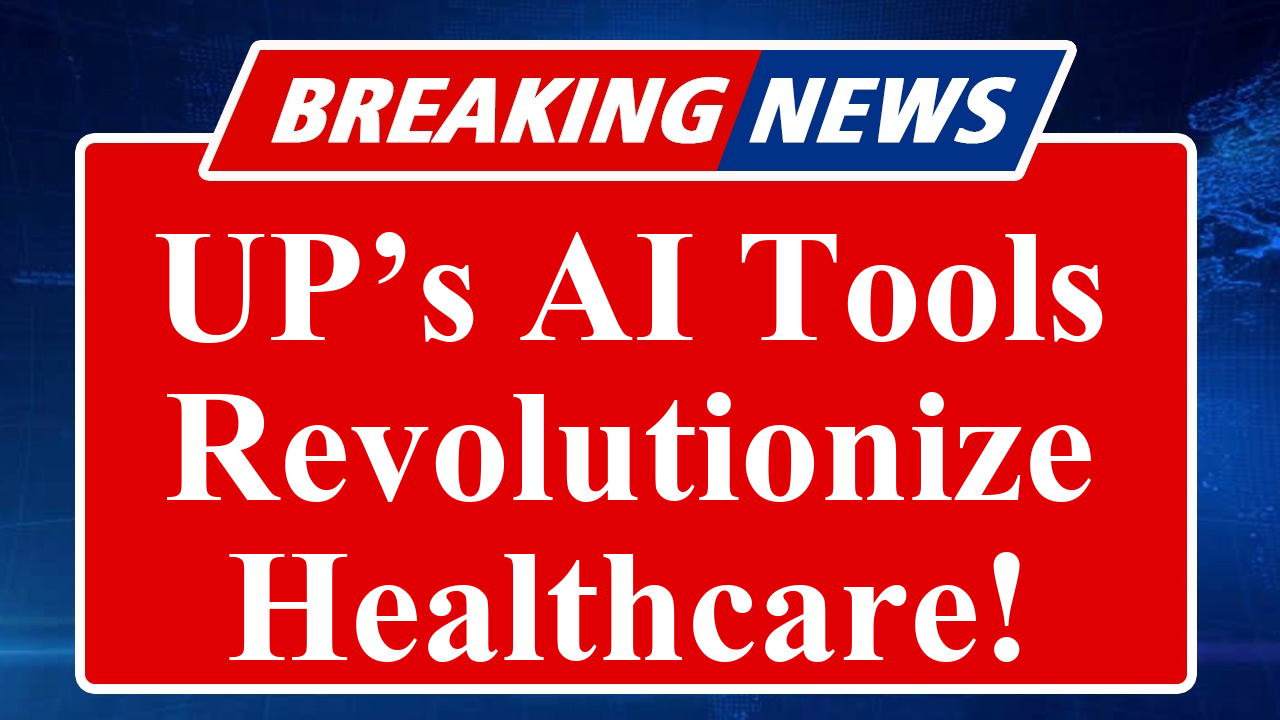Uttar Pradesh is revolutionizing healthcare with cutting-edge AI diagnostic tools, enhancing accuracy and accessibility. From AI-powered imaging to predictive analytics, these innovations aim to address the state’s healthcare challenges, including rural access and doctor shortages. Supported by government initiatives, UP’s health tech advancements promise faster diagnoses and better patient outcomes, setting a model for India’s healthcare transformation.
UP’s AI Revolution in Healthcare Diagnostics
AI-Powered Imaging Solutions
Uttar Pradesh is leveraging AI to enhance medical imaging, such as CT scans and MRIs. Startups like Qure.ai, in collaboration with local hospitals, are deploying AI tools to analyze chest X-rays for conditions like tuberculosis and pneumonia with high accuracy. These tools reduce diagnostic time, crucial in a state with a significant rural population and limited radiologist availability.
Predictive Analytics for Early Detection
AI-driven predictive models are being integrated into UP’s healthcare system to detect diseases like cancer and heart conditions before symptoms manifest. For instance, tools similar to Cardiotrack’s ECG monitoring system are being piloted in UP to identify cardiac risks early, potentially saving lives in underserved areas.
Government Support and Initiatives
The UP government is actively supporting health tech innovation through initiatives like the National Health Stack and partnerships with tech firms. In 2024, UP allocated significant funds to healthcare infrastructure, aligning with India’s INR 909.59 billion national healthcare budget, to integrate AI tools into public hospitals and rural health centers.
Addressing Rural Healthcare Gaps
With 73% of India’s population lacking basic medical amenities, UP’s AI tools focus on rural accessibility. AI platforms like OnliDoc are being tested in UP to provide virtual diagnostics, enabling remote consultations and reducing the burden on urban hospitals. These solutions also support multilingual interfaces to cater to UP’s diverse linguistic needs.
Challenges in Implementation
Despite progress, UP faces challenges like fragmented diagnostic labs and data privacy concerns. The state’s 100,000+ diagnostic centers create scalability issues, and ensuring ethical AI use remains critical. UP is addressing these through partnerships with tech giants like Google and Microsoft, which are developing secure, federated learning models.
Collaborations with Startups and Global Players
UP’s health tech ecosystem is thriving with collaborations between local startups and global firms. For example, Apollo Hospitals in UP has partnered with ConnectedLife to deploy AI tools for cardiovascular risk prediction. Similarly, Niramai’s AI-based breast cancer screening is being piloted in select UP districts, enhancing early detection.
Impact on Healthcare Accessibility
AI tools are making diagnostics more affordable and accessible in UP. Google’s partnership with Apollo Radiology International aims to provide 3 million free screenings for TB, lung cancer, and breast cancer across India, with UP as a key focus area. This initiative targets low-resource settings, ensuring equitable healthcare access.
Future Prospects and Scalability
UP’s AI diagnostic tools are poised to scale nationwide, with the state’s predictive healthcare market projected to grow significantly by 2034. Innovations like federated learning, which ensures data privacy, and the Ayushman Bharat Digital Mission’s digitization of patient records are setting the stage for a healthcare revolution in UP.
Disclaimer: This article is based on recent news, reports, and industry insights from credible sources, including web-based research and trends observed in India’s health tech sector. The information reflects the latest developments as of August 2025 and is subject to change as new data emerges.

